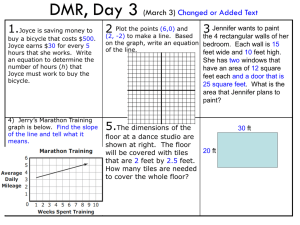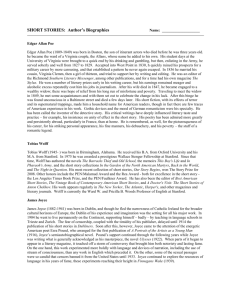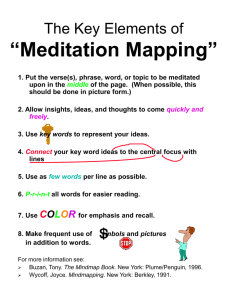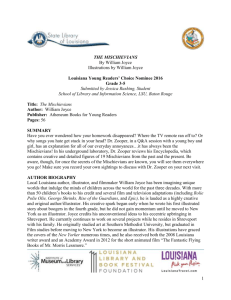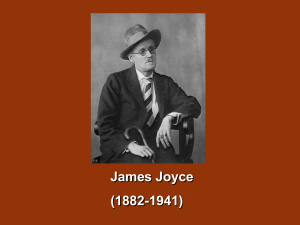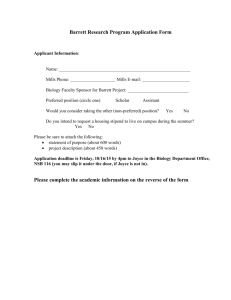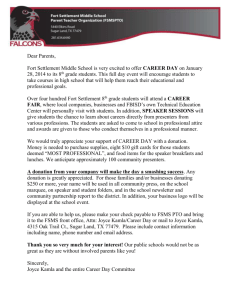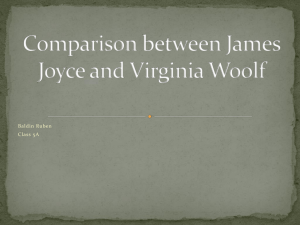In The Salt-Stained Book, the first in a trilogy of
advertisement
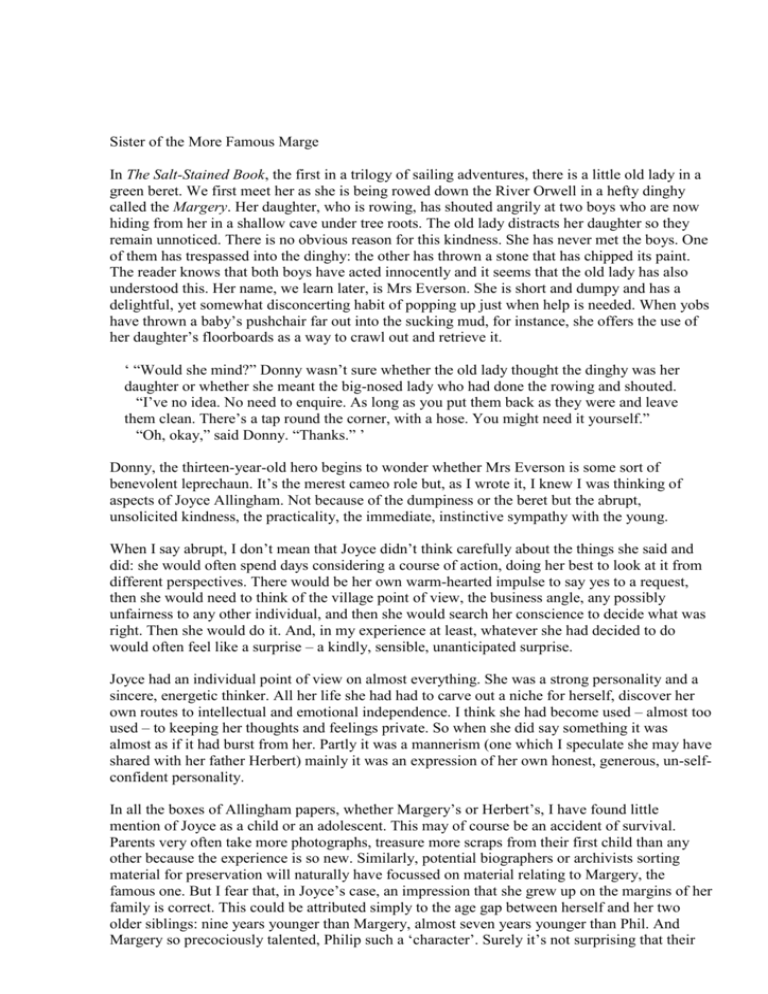
Sister of the More Famous Marge In The Salt-Stained Book, the first in a trilogy of sailing adventures, there is a little old lady in a green beret. We first meet her as she is being rowed down the River Orwell in a hefty dinghy called the Margery. Her daughter, who is rowing, has shouted angrily at two boys who are now hiding from her in a shallow cave under tree roots. The old lady distracts her daughter so they remain unnoticed. There is no obvious reason for this kindness. She has never met the boys. One of them has trespassed into the dinghy: the other has thrown a stone that has chipped its paint. The reader knows that both boys have acted innocently and it seems that the old lady has also understood this. Her name, we learn later, is Mrs Everson. She is short and dumpy and has a delightful, yet somewhat disconcerting habit of popping up just when help is needed. When yobs have thrown a baby’s pushchair far out into the sucking mud, for instance, she offers the use of her daughter’s floorboards as a way to crawl out and retrieve it. ‘ “Would she mind?” Donny wasn’t sure whether the old lady thought the dinghy was her daughter or whether she meant the big-nosed lady who had done the rowing and shouted. “I’ve no idea. No need to enquire. As long as you put them back as they were and leave them clean. There’s a tap round the corner, with a hose. You might need it yourself.” “Oh, okay,” said Donny. “Thanks.” ’ Donny, the thirteen-year-old hero begins to wonder whether Mrs Everson is some sort of benevolent leprechaun. It’s the merest cameo role but, as I wrote it, I knew I was thinking of aspects of Joyce Allingham. Not because of the dumpiness or the beret but the abrupt, unsolicited kindness, the practicality, the immediate, instinctive sympathy with the young. When I say abrupt, I don’t mean that Joyce didn’t think carefully about the things she said and did: she would often spend days considering a course of action, doing her best to look at it from different perspectives. There would be her own warm-hearted impulse to say yes to a request, then she would need to think of the village point of view, the business angle, any possibly unfairness to any other individual, and then she would search her conscience to decide what was right. Then she would do it. And, in my experience at least, whatever she had decided to do would often feel like a surprise – a kindly, sensible, unanticipated surprise. Joyce had an individual point of view on almost everything. She was a strong personality and a sincere, energetic thinker. All her life she had had to carve out a niche for herself, discover her own routes to intellectual and emotional independence. I think she had become used – almost too used – to keeping her thoughts and feelings private. So when she did say something it was almost as if it had burst from her. Partly it was a mannerism (one which I speculate she may have shared with her father Herbert) mainly it was an expression of her own honest, generous, un-selfconfident personality. In all the boxes of Allingham papers, whether Margery’s or Herbert’s, I have found little mention of Joyce as a child or an adolescent. This may of course be an accident of survival. Parents very often take more photographs, treasure more scraps from their first child than any other because the experience is so new. Similarly, potential biographers or archivists sorting material for preservation will naturally have focussed on material relating to Margery, the famous one. But I fear that, in Joyce’s case, an impression that she grew up on the margins of her family is correct. This could be attributed simply to the age gap between herself and her two older siblings: nine years younger than Margery, almost seven years younger than Phil. And Margery so precociously talented, Philip such a ‘character’. Surely it’s not surprising that their doings were so much more attention-grabbing than the activities of the shy little sister? This needn’t have been so. In another family a youngest child, especially one born after a gap that may have included a miscarriage or infant death, could have been doted on and over-indulged by all – spoiled even. That didn’t happen to Joyce. She told me once that she considered one of the main achievements of her childhood was perfecting her skill at getting in and out of rooms un-noticed. I didn’t know how to respond – it’s such a terrible thing to say. Especially as she was saying it in the context of her fear and dislike for her mother. It’s somehow doubly poignant that scrutiny of her father’s letters and diaries reveals so little to compensate. Joyce loved and trusted her father and there is nothing to suggest that this was not reciprocated. I’m sure that it was. In Herbert Allingham’s diaries, however, she appears most often as a practical problem: who is to look after her, how are her school fees to be paid, should she be allowed to stay on at school or should she leave in order to begin contributing to the family finances. In which case, what could she do? She was photographed at a typewriter when she was three years old but writing was not her forte. Perhaps this should be used as an advertising gimmick, suggested her father’s friend, William McFee, not entirely un-seriously. Joyce was born in 1913, at a time when her mother was embarking on the most prolific fictionproducing phase of her life. The older children were already at school and Joyce was cared for by a nursemaid or by Granny (Emily Jane Allingham). She too went to boarding school very young and Herbert Allingham’s dairies show that she was often shunted from relation to relation in the holidays as well. Joyce liked school and didn’t want to leave until that latest possible moment. Her mother thought that she should: her father supported her in her decision to stay – as he had supported Margery and Phil in their decisions to leave. After that she was expected to be self-supporting. One of the earliest memories I have of Joyce over-turning one of my illconsidered assumptions, was when I listened to her speaking with contempt about what we were then probably calling Women’s Lib. She found it hard to understand the fuss that middle-class women were making about the right to work. They had all worked for their livings, in her family, she said, male or female. That was what you did. Joyce’s self-reliance was more than a negative reaction to family neglect or economic necessity. She begged to be allowed to go on guide camps during the school holidays as another way to avoid being at home yet such activities also offered her opportunities to develop her unacknowledged leadership skills, her ability to make decisions and take responsibility. It seems sad that her lack of confidence was such that it took years before she could accept just how competent she was. When she did leave school she, like her brother Phil, attempted to conform to family expectations and took a journalism course. Her father recorded his surprise that one of her first articles was quite good. But this came to nothing. Her time serving in the WRNS during the Second World War could have set her on a different path and she remained in the service for some time after the war ended. Then she oscillated between mundane administrative jobs in publishing (as assistant to Doubleday’s Winifred Nerney, for example) and periods of rebellion when she went ‘on the road’ with her brother Phil and his wife Francesca. Herbert Allingham was dead by this time but Margery did not approve. For years Joyce assumed that the only way to preserve her independence and shreds of self-confidence was to stay right away from her successful older sister. I think both she and Margery would have appreciated the neatness of life’s plot twist that it was in coming home in 1955 to live with Margery and manage her affairs that Joyce discovered how capable she really was. After Margery’s death in 1966 Joyce coped as best she could with her grieving brother-in-law. Then she was forced to endure the extreme pain of her brother Phil’s suicide in 1969. There are unsorted boxes of Joyce’s papers in the Colchester archive. I think I owe it to her, one day, to read through solidly and see what can be glimpsed of her feelings through the lonely years as she battled on as the de facto manager of P & M Youngman Carter Ltd; managing the move out of D’Arcy House into the Studio, continuing to uphold her sister’s reputation through difficult times and to make her own influential, idiosyncratic contribution to village life. In his memoir Esox Lucius, Doug Pike remembers Joyce arriving to canvass his referendum support for Britain remaining in the Common Market (something he told her he opposed) with a bottle of champagne in her hand and an invitation to him to stand for the Parish Council. An invitation she re-iterated even though his first elected act was an attempt to block her proposal to develop D’Arcy Meadow. Joyce had her private pleasures – her dogs, Brock and Belle, and the friends she made as she attended field trial events with them. She was interested in politics and ideas, in single malt whiskies and in London theatre. Characteristically she was an ‘Angel’ for many years – one of the unsung supporters who risk their money by investing in new productions. She was seriously interested in photography though, once again, held back by her lack of self-belief. It is only now with the involvement of the East Anglian Film Archive that there begins to be recognition that she may have possessed some talent. Her relationship with Margery’s friend and house-keeper Christina Carter, with whom she shared her home until Christina’s death, gave her a bed-rock of affection and support that I don’t think she ever tried to put into words. In my fictional portrait of ‘Mrs Everson’ I give that character a daughter and make the assumption that she has been married. I think Joyce went to her death still puzzled about herself in this aspect. She had been a slim and pretty girl, had had boyfriends, come close to engagement, yet had not ultimately wanted to marry or live in any overtly romantic relationship – whether with the same or the opposite sex. Sometimes she asked herself why? but never, as far as I know, found an answer that convinced her. Joyce liked children, saw them as individuals, took a real interest in their doings, reached out to them. When I told my partner Francis that I was writing this piece he immediately said that I mustn’t forget to mention all the surprising, carefully chosen gifts that she gave to us and to our children – and Francis is himself a talented present-giver who recognises that this is a skill. Yet I never heard her say that she wished she had had children of her own. Joyce gave me far more than Christmas gifts. When we were rowing the dinghy Margery (otherwise known as writing her sister’s biography) together, she was generous with her time, her information and herself. She took the decision that honesty, however awkward and unexpected, was the best policy. I loved Joyce. I hope that she would read even my fiction or this article in that same spirit. Julia Jones
